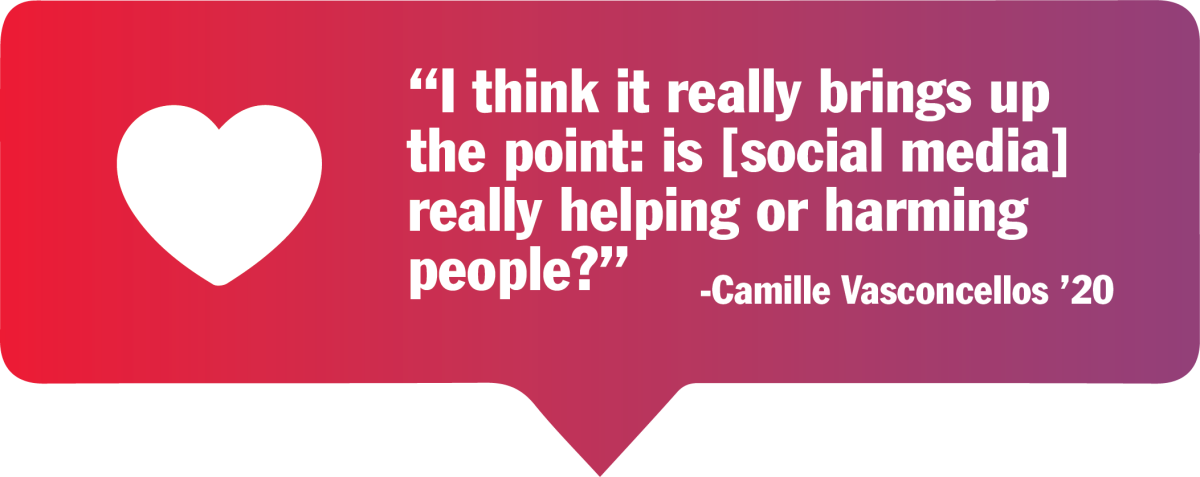When she was a sophomore in college, Jenny Fritz ’20 started modeling and posting photos taken by local photographers on her Instagram, which she used as her portfolio. A year and a half later, Fritz was signed by a modeling agency.
After beginning her modeling career, Fritz said she began to feel the negative effects of social media—comparing herself to other models on Instagram. She said she got over that feeling by acknowledging that Instagram is not a reflection of real life: “You have to realize that this isn’t real.”
The topic of social media’s effect on mental health has been widely criticized. Recently, Instagram made the decision to remove likes, which they say is to make the app have less of an impact on user’s mental health.
Fritz said she thinks at the end of the day removing likes doesn’t really make a difference. She suggested that a better solution would be for Instagram to promote mental health awareness rather than hiding likes.
“They should promote well being, mental health,” Fritz said. “They should actually be promoting self care and self help. I think they should do something a little bit deeper than just hiding likes.”
Adam Mosseri, head of Instagram, announced on Nov. 8 that the like feature would be removed from public view at the WIRED25 conference, adding that Instagram has been testing the removal of likes in other countries around the world, including Japan and Canada. With the removal of likes, Mosseri said a user can now see how many people liked their own post, but not the posts of others.
“The idea is to try to depressurize Instagram, make it less of a competition [and] give people more space to focus on connecting with the people that they love [and the] things that inspire them,” Mosseri said at the conference.
Hiding engagement metrics such as likes, retweets or favorites isn’t a new idea. Facebook, who owns Instagram, has tested this method out before, and the photo editing app VSCO has a format in which users can only view their individual likes or reposts, but not others.
Phyllis Anastasio, Ph.D., professor of psychology, noted that the removal of likes on Instagram may be good for the mental health of users, if they use it the right way.
“It’s really up to us to use social media in that positive, connecting-with-others way rather than to see it as a competition for who gets the most ‘likes,’” Anastasio said.
Camille Vasconcellos ’20, president of the Psychology Club, said for younger technology users, Instagram may be a place where they go to feel validated by their peers.
“If that validation isn’t there, they are seeking instant gratification, they are modifying who they are as a person,” Vasconcellos said. “I think it really brings up the point: is [social media] really helping or harming people?”
David Parry, Ph.D., associate professor of communication studies, said he is skeptical that this change in Instagram’s platform is for the benefit of the public.
“[I don’t know] whether it’s so that people like Instagram more and use it more, or that it forces certain people to buy ads more, but I’m pretty sure they aren’t doing it for our mental health,” Parry said.
While Fritz thinks it is positive for Instagram to be addressing concerns of self-image surrounding social media, she is also skeptical about the effectiveness of removing likes. She thinks a lot of it comes down to personal mindset.
“It’s kind of them just trying to save face,” Fritz said. “It is more of an underlying thing. It’s more of a mindset.”
Whether or not Instagram is removing likes for the benefit of users’ mental health, Anastasio said people are still likely to use the app.
“Social media usage is not going to go away,” Anastasio said. “It’s up to us to evolve social rules, norms and attitudes towards their usage that will promote connection, not competition.”















































